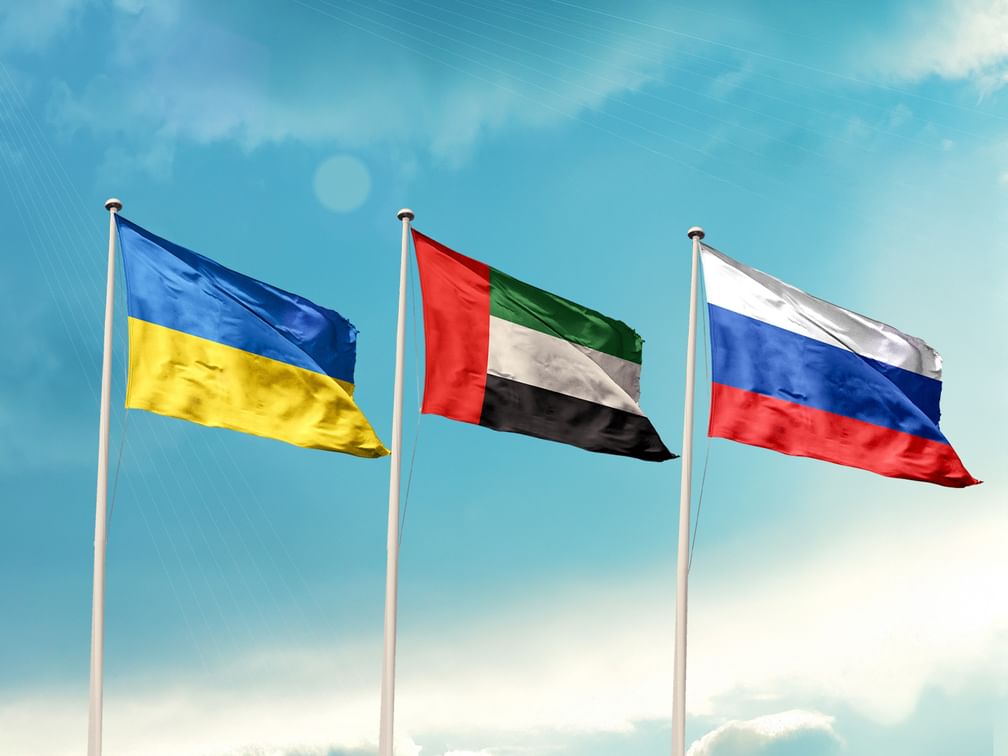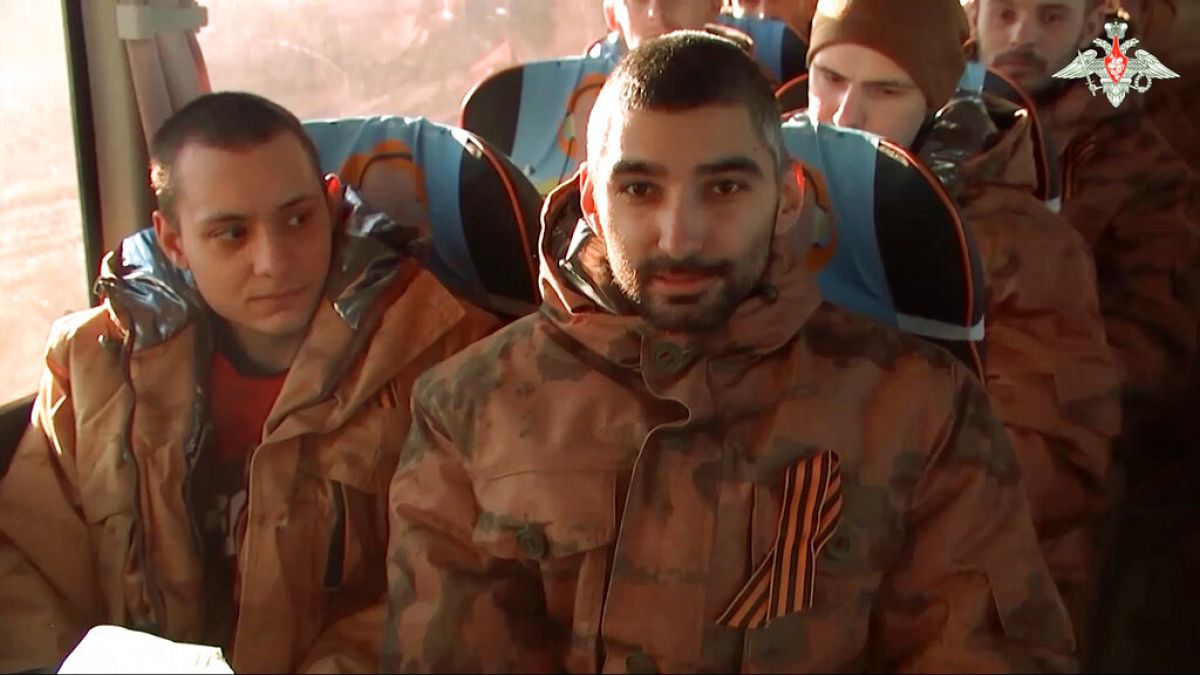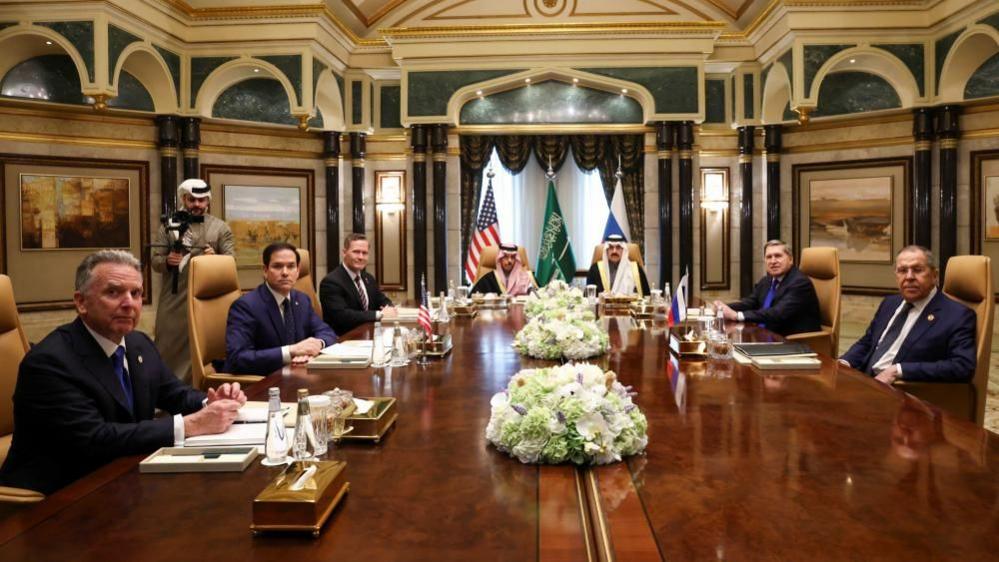
UAE Mediates Major Russia-Ukraine Prisoner Exchange Set for Tomorrow as War Continues
UAE-Brokered Prisoner Exchange Marks Major Humanitarian Milestone as Russia-Ukraine Conflict Persists
ABU DHABI — In a carefully orchestrated diplomatic effort, nearly 500 prisoners of war are set to return to their respective countries tomorrow as Russia and Ukraine prepare for one of their largest prisoner exchanges since the conflict began. The United Arab Emirates, cementing its role as a pivotal neutral mediator in the prolonged conflict, has orchestrated the exchange of 246 prisoners from each side, plus an additional 46 injured soldiers.

The exchange, scheduled for Saturday, April 19, represents another significant humanitarian achievement in a war that has seen limited diplomatic progress on other fronts. It marks the latest in a series of successful prisoner swaps facilitated by Abu Dhabi since Russia's full-scale invasion of Ukraine began in February 2022.
Middle East Diplomacy Takes Center Stage in European Conflict
The upcoming exchange underscores the UAE's increasingly prominent role in international diplomacy, particularly in conflicts where Western-led mediation efforts have faced obstacles. With this latest operation, the total number of captives exchanged under UAE mediation will reach 3,233, according to diplomatic sources.
"What we're witnessing is a new model of humanitarian diplomacy where Gulf states leverage their unique position of maintaining cordial relations with both Moscow and Western capitals," explained a regional security analyst who requested anonymity due to the sensitivity of ongoing negotiations.
The UAE's success in this arena stems from its carefully cultivated position of neutrality. While maintaining strong economic ties with Russia, the Emirates has simultaneously preserved positive relations with Ukraine and its Western allies. This delicate balancing act has allowed Abu Dhabi to establish itself as a trusted intermediary where other diplomatic channels have faltered.
Since 2022, Kyiv and Moscow have conducted nearly 60 prisoner exchanges, with the UAE acting as mediator in at least 13 of them since 2024 alone. Previous exchanges this year included swaps of 300 prisoners in February, followed by two exchanges of 350 people each in March—all facilitated through UAE diplomatic channels.
"Humanitarian Bridge" Between Warring Nations
The scale and frequency of these exchanges have established what one Ukrainian diplomat described as a "humanitarian bridge" between the two nations, even as their military forces continue to clash on the battlefield.

Russian President Vladimir Putin has publicly acknowledged the UAE's contributions, thanking the Gulf nation for its "active mediation" in previous exchanges. Ukrainian President Volodymyr Zelenskyy has also visited the UAE to discuss both economic ties and prisoner exchanges, emphasizing the return of Ukrainian captives as a top priority for his administration.
"These exchanges represent one of the few areas where both Moscow and Kyiv can find common ground," noted a former European defense attaché with extensive experience in the region. "They provide tangible political wins for both leadership teams while addressing very real humanitarian concerns."
The swaps often include gestures of goodwill, such as the prioritized release of wounded soldiers or those who have been held captive for extended periods. Tomorrow's exchange includes 46 injured personnel who will receive immediate medical attention upon their return.
Broader Gulf Diplomatic Initiative Gains Momentum
The UAE's mediation efforts appear to be part of a wider diplomatic push by Gulf states. Both the UAE and Saudi Arabia have intensified efforts to position themselves as mediators between Russia and Ukraine in recent months, reflecting the region's growing geopolitical ambitions and desire to diversify their international relationships beyond traditional Western alliances.
Neutral mediation in international conflicts involves an impartial third party facilitating communication and negotiation between disputing states. Lacking vested interests, the mediator aims to help the parties reach a mutually acceptable resolution, leveraging trust built on their impartiality to aid conflict resolution.
Beyond facilitating prisoner exchanges, the UAE has also created opportunities for dialogue between Russia and the United States regarding Ukraine, with recent talks taking place in Saudi Arabia. These efforts highlight the Emirates' expanding diplomatic portfolio and its willingness to engage in complex international disputes.

Financial Markets React With Cautious Optimism
For global investors closely monitoring the conflict's trajectory, these humanitarian exchanges offer intriguing—if limited—signals. Financial analysts note that while prisoner swaps represent positive diplomatic developments, their impact on market sentiment remains constrained.
"These exchanges, while encouraging from a humanitarian perspective, don't fundamentally alter the conflict's economic implications or signal an imminent resolution," observed a senior market strategist at a major European investment bank. "They're diplomatic islands of cooperation in an otherwise troubled relationship."
Markets continue to price in significant geopolitical risk, particularly in sectors exposed to energy, defense, and commodities. The exchanges and occasional temporary ceasefires that sometimes accompany them may produce short-term reductions in market volatility, especially in European energy and defense stocks, but these effects are typically fleeting.
"For serious investors, particularly those managing significant exposure to Eastern European markets, these exchanges represent tactical developments rather than strategic shifts," explained a portfolio manager specializing in emerging markets. "Any meaningful market repricing would require evidence of a broader settlement, not just humanitarian gestures."
US-Russia Communication Channels Remain Open Despite Tensions
The exchanges also illuminate the complex diplomatic dance between Washington and Moscow. Despite deep geopolitical tensions, communication channels between the United States and Russia remain functional, with prisoner exchanges sometimes following direct presidential calls.

These humanitarian discussions, however, exist in parallel to—rather than as part of—broader geopolitical strategy. Experts emphasize that such swaps are unlikely to alter the overall trajectory of US or NATO policy regarding the conflict. Washington continues to support Ukraine militarily and diplomatically, and these humanitarian gestures have not signaled readiness for larger compromises or peace deals.
"The Trump administration has been careful to separate prisoner negotiations from policy positions on Ukraine," noted a former State Department official with knowledge of the discussions. "These are compartmentalized diplomatic tracks by design."
Track II diplomacy involves unofficial dialogues and conflict resolution efforts led by non-governmental actors like academics, experts, or retired officials. Unlike formal Track I diplomacy conducted by governments, it focuses on building trust and exploring solutions outside official negotiations.
Tactical Pauses Rather Than Strategic Breakthroughs
Recent exchanges have occasionally coincided with limited ceasefire agreements or pauses in hostilities. One notable example was a 30-day suspension of attacks on energy infrastructure agreed upon after US-Russia talks. However, these are widely viewed as tactical pauses rather than strategic breakthroughs, with both sides frequently accusing each other of undermining such truces.
From an investment perspective, defense and energy sectors remain particularly sensitive to developments in the conflict. Any sign of de-escalation, even temporary, can lead to short-term pullbacks in defense stocks and stabilization in energy prices. Companies with direct exposure to Russia or Ukraine continue to face operational and compliance risks due to ongoing sanctions and the unpredictable security environment.
European natural gas prices (e.g., TTF benchmark) since the start of the full-scale invasion.
| Period | TTF Price (€/MWh) | Notes |
|---|---|---|
| March 2022 | ~345 | All-time high reached shortly after the full-scale invasion began |
| August 26, 2022 | ~319 | Record high for front-month contract amid fears of Nord Stream closure |
| February 2025 | ~47 | Price remained elevated, around double pre-crisis levels |
| April 18, 2025 (Current) | ~35.4-35.7 | Prices hovering near this level after recent fluctuations |
Humanitarian Progress Amid Diplomatic Deadlock
As preparations for tomorrow's exchange conclude, the operation stands as evidence that even amid entrenched conflict, humanitarian progress remains possible. The scheduled return of nearly 500 people to their homes represents a meaningful diplomatic achievement in a war that has otherwise seen few reasons for optimism.
Whether these humanitarian channels might eventually expand into broader peace negotiations remains an open question. For now, they serve as crucial lifelines for prisoners caught in a conflict that shows little sign of resolution, while offering a narrow but important avenue for continued diplomatic engagement between nations whose relationships have otherwise deteriorated dramatically.
"These exchanges remind us that even in the darkest conflicts, paths for cooperation can be found," reflected an international humanitarian worker who has assisted with previous prisoner returns. "The challenge is translating this humanitarian momentum into broader political solutions."
Tomorrow's exchange will unfold under tight security, with both Russian and Ukrainian officials overseeing the methodical transfer of prisoners at a carefully selected neutral location. For the families awaiting their loved ones' return, the diplomatic complexities matter far less than the simple fact that, after months or years of separation and uncertainty, nearly 500 people will finally be going home.
Key Facts: April 2025 Russia-Ukraine Prisoner Exchange
| Detail | Information |
|---|---|
| Date of Exchange | Saturday, April 19, 2025 |
| Mediator | United Arab Emirates |
| Prisoners Exchanged | 246 Russians, 246 Ukrainians, plus 46 injured soldiers |
| Total Exchanged via UAE (to date) | 3,233 |
| Previous Exchanges in 2025 | 300 (February), 350 (March), 350 (March) |
| Upcoming Exchange Total | ~500 (April, including injured) |
| UAE Mediation Count | 13 exchanges since Jan 2024 |
| Humanitarian Focus | Includes severely wounded and long-held prisoners |
| UAE's Diplomatic Role | Neutral mediator maintaining strong ties with both sides |